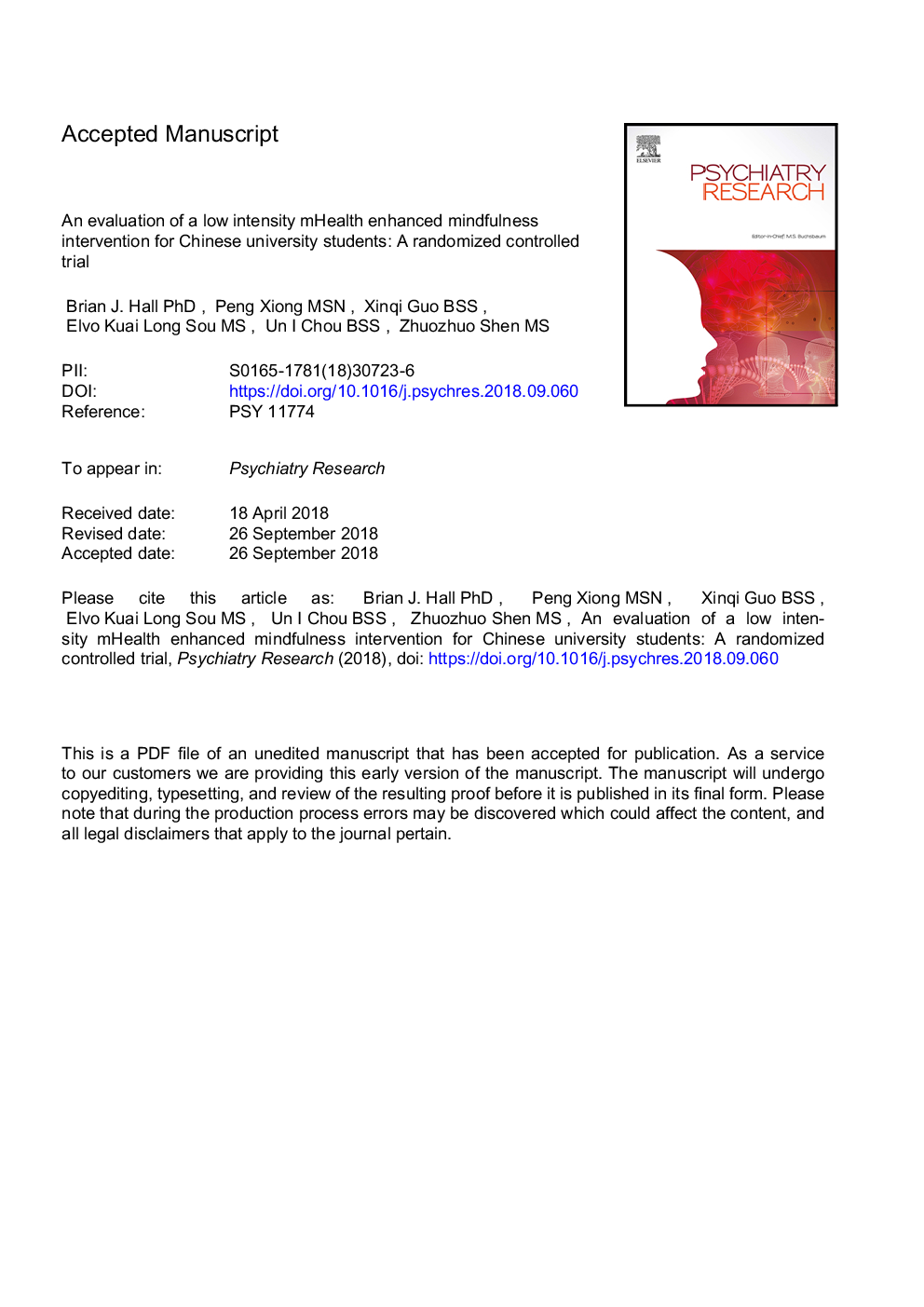| Article ID | Journal | Published Year | Pages | File Type |
|---|---|---|---|---|
| 11024103 | Psychiatry Research | 2018 | 34 Pages |
Abstract
Mental disorders and sleep dysfunction are common among Chinese university students. This study aimed to evaluate a low cost scalable mindfulness intervention program to improve psychological health and sleep quality among Chinese university students. A randomized controlled trial with 101 university students (mean age 22.30â¯Â±â¯2.63, 69.31% female) was conducted. Participants were randomized into 4 groups: Group 1: control group (nâ¯=â¯25), Group 2: mindfulness only group (nâ¯=â¯27), Group 3: mindfulnessâ¯+â¯plain-text reminder group (nâ¯=â¯24), and Group 4: mindfulnessâ¯+â¯enhanced text reminder with animal meme group (nâ¯=â¯25).The mindfulness intervention consisted of two in-person guided sessions along with weekly self-guided practice for 7 weeks. The Depression, Anxiety and Stress Scale (DASS-21) and The Pittsburgh Sleep Quality Index (PSQI) were used to measure depression, anxiety, stress, and sleep dysfunction. After the intervention at week 4, compared to controls, completers in group 2, 3 and 4 (nâ¯=â¯42) showed significantly reduced depression (Cohen's dâ¯=â¯0.83), anxiety (Cohen's dâ¯=â¯0.84), and stress (Cohen's dâ¯=â¯0.75), and improved subjective sleep quality (Cohen's dâ¯=â¯2.00), sleep latency (Cohen's dâ¯=â¯0.55), and habitual sleep efficiency (Cohen's dâ¯=â¯0.86). The effect was maintained at week 7. Low-intensity mindfulness interventions might be a useful intervention program in university settings.
Related Topics
Life Sciences
Neuroscience
Biological Psychiatry
Authors
Brian J. Hall, Peng Xiong, Xinqi Guo, Elvo Kuai Long Sou, Un I Chou, Zhuozhuo Shen,
